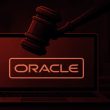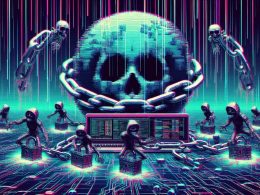The government of Thailand has been under the hammer of internet activist groups since the parliament approved an amendment to the 2007 Computer Protection Law. There is strong resentment among activists because the Single Internet Gateway project will be implemented by the amended law, which was passed on Friday.
The Single Internet Gateway project of the military government requires scanning of the entire digital data from overseas via a junta-controlled entry point. The project has received immense criticism from civil society and internet activist groups alike.
Read: Anonymous Strike Again- This time 100 Thai Prison Databases Leaked
After the bill was passed into a law, the websites of the National Security Agency and the Ministry of Defense became inaccessible on Tuesday. It is being reported that six government websites, including the two mentioned above, were DDoSed including the public page of the ruling junta party, National Security Guard website and the webpage of the Ministry of Digital Economy.
A local internet activist group has claimed the responsibility of the attacks. The group calls itself the Civilians Against Single Gateway and maintains that Anonymous, the infamous hackers collective, aided them in accomplishing the task.
Remember, last year we exclusively reported on how Anonymous hacked Thai police server and leaked a trove of data against Internet surveillance and censorship in the country.
However, the havoc that started on Monday and continued till Tuesday. Some internet activists tweeted images of internal data that belonged to Thai Police and the National Intelligence Agency, which hinted at the fact that their websites were accessed by hackers. The tweets were followed by comments from the hackers who tried to mock the agencies on their failure in securing confidential information.
Read: Anonymous Hacks Asia Pacific Telecommunity Against Internet Censorship
One of the tweets read:
The #Thai gov wants to #police the #internet, #Thai police can’t guard their own data from #Anonymous, is your data safe with them? #พรบคอม pic.twitter.com/S6c8jJxjHo
— Anonymous (@blackplans) December 16, 2016
WorldBulletin reports that the bill is being heavily criticized because there are various terms that violate or curb the citizens’ rights of freedom of expression. Such as, the law will punish people for “entering forged or distorted computer data or false information into a computer system that is deemed to damage people, national security, public services or infrastructure or cause public panic.” This particular section has been described by people as “too broad in scope.” Those charged with this offense will be facing a maximum jail term of 5 years as well a fine of $2,800.
Moreover, a section of the law requires setting up of a 9 member committee and giving it full authority for screening the “screen content which could breach public order or public morals even if that content does not violate the law”. The
Another controversial section involves the setting up a nine-member committee granted the power “to screen content which could breach public order or public morals even if that content does not violate the law.” The committee can easily seek a court order for deleting or blocking of such content.
Read: Anonymous Hacks Thailand Police, Expose Wrongdoing in Murder Investigation
It is worth noting that the bill was passed after 6 hours long debate with 168 votes in favor and 0 votes against the bill. On the other hand, before the bill was signed into a law, a petition was signed by over 360,000 internet users in Thailand protesting against the amendment and demanding to revise the bill.









